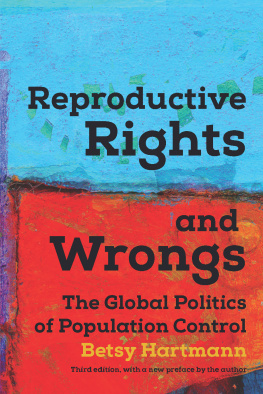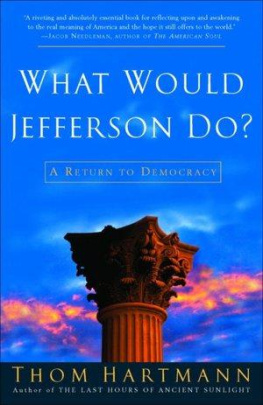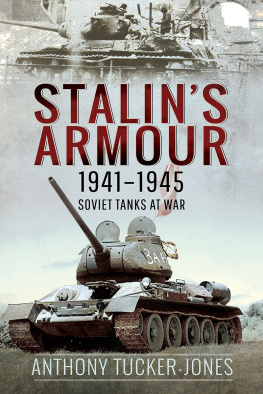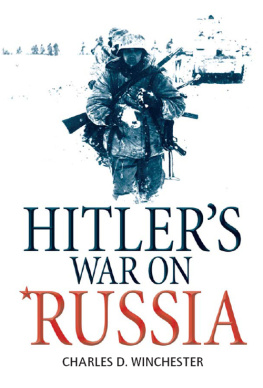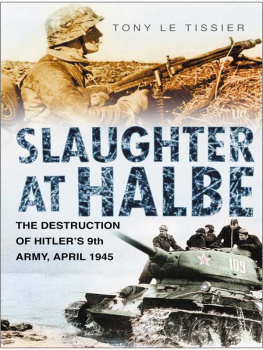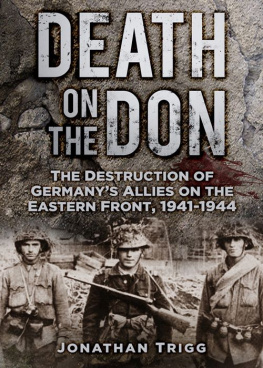OPERATION BARBAROSSA
OPERATION BARBAROSSA

Nazi Germanys War in the East,
19411945
CHRISTIAN HARTMANN


Great Clarendon Street, Oxford, 0X2 6DP,
United Kingdom
Oxford University Press is a department of the University of Oxford.
It furthers the Universitys objective of excellence in research, scholarship,
and education by publishing worldwide. Oxford is a registered trade mark of
Oxford University Press in the UK and in certain other countries
Originally published as Unternehmen Barbarossa:
Der Deutsche Krieg im Osten, 19411945
Verlag C. H. Beck oHG, Mnchen 2011
Author: Christian Hartmann
The moral rights of the author have been asserted
First published 2013
Impression: 1
All rights reserved. No part of this publication may be reproduced, stored in a retrieval system, or transmitted, in any form or by any means, without the prior permission in writing of Oxford University Press, or as expressly permitted by law, by licence, or under terms agreed with the appropriate reprographics rights organization. Enquiries concerning reproduction outside the scope of the above should be sent to the Rights Department, Oxford University Press, at the address above
You must not circulate this work in any other form
and you must impose this same condition on any acquirer
British Library Cataloguing in Publication Data
Data available
ISBN 9780199660780
Printed in Great Britain by
Clays Ltd, St Ives plc
Links to third party websites are provided by Oxford in good faith and
for information only. Oxford disclaims any responsibility for the materials
contained in any third party website referenced in this work.
IN MEMORY OF MY MOTHER
INGEBORG HARTMANN
BORN 17.6.1929 IN BERLIN,
GREW UP IN GREIFSWALD,
DIED ON 31.5.2009 IN TBINGEN
WHO TAUGHT ME SO MUCH ABOUT THIS WAR
AND ITS CONSEQUENCES
AND WITH THANKS TO
ANNE MUNDING
WITHOUT WHOM THIS BOOK WOULD NEVER
HAVE BEEN WRITTEN
CONTENTS
Figure
Illustrations
The publishers would like to extend their especial thanks to Professor Jonathan Wright for his editorial contribution to the preparation of the English edition of this book.
The real war will never get in the books.
Walt Whitman (181992)
1
Introduction
Never before or since had there been a war like this one. A war that cost so much blood, with such enormous repercussions, or that etched itself so deeply into the collective memory of its contemporaries as the war that raged between the German Reich and the Soviet Union from 1941 to 1945. History is not short of conflicts both bloody and momentous in their consequences that have seared themselves into the memory of posterity, but there are not many, even among the pivotal conflicts of world history, that are comparable to the GermanSoviet War. Everything about it was gargantuanthe numbers deployed, the theatre over which it was fought, and, not least, the numbers of victims that it claimed.
It was a conflict for which it is difficult to name an equivalent, in either its scale or its consequences. The Allied victory in the Second World War obviously stemmed from a variety of causes, and it would naturally be misleading to reduce explanations for the defeat of Hitlers Germany to a mere handful of factors and events. But it is undeniable that the Soviet Union played a large part, if not the largest part, in that victory. It was there that the Wehrmacht bled itself dry, and it was in the East that it first became apparent that Hitlers deluded and criminal attempt at National Socialist world domination would end in failure. The reverberations were so immense that they continued long after 1945; Operation Barbarossa fundamentally changed the map of Europe. Without it, the ethnic reorganization and Sovietization of its eastern half would have been unimaginable. But, above all, it was the Great Patriotic War and its millions of dead that turned the Soviet Union into a superpower.
Finally, the way the war was fought was itself extraordinary. It was a fight for existence between the twentieth centurys two great totalitarian movementsand the conduct of both sides was correspondingly extreme. Both Nazi Germany and the Stalinist Soviet Union fought the war as though it were a crusade. The result was an orgy of violence, even if much of the fighting at the front as often as not was of a conventional nature. What was crucial, however, was that a new type of war developed, an increasingly ideological, total war, one that returned almost to its atavistic origins. Moreover, this was neither a peripheral colonial war, nor a civil war fought according to its own set of rules and conventions. It was a pivotal conflict fought between two of Europes most cultured and venerable nations. The effects of the new way in which the belligerents looked at both themselves and each other are not to be underestimated. Since 1945, there have been ever more examples of the extent to which modern warfare is characterized by what are generally acknowledged as war crimesand of the way such crimes have to a degree even come to replace it. It was during the GermanSoviet War that much of this behaviour became common practice once more.
And this was no accidentthe German leadership wanted it that way. Operation Barbarossa was a war of aggression that the Third Reich started out of choice not necessity. It was alsosomething that would prove even more calamitousconceived from the very first as an ideological war of ethnic annihilation. That is not so say that the Soviet Union, whose leaders had embarked on the adventure of the HitlerStalin Pact in 1939, was completely blameless in radicalizing the way in which the war was waged. It, too, was a totalitarian and deeply criminal regime, and became all the more so when it found itself with its back to the wall. But it remains indisputable that the initiative for the war came from Germany and that, seen as a whole, the German atrocities during the war weigh significantly more heavily than do the Soviet ones.
These experiences inevitably left a deep impression on the societies that were involved. Even today there are few things as important to the national identity of the post-Soviet nations as the memory of victory over Hitlers Germany. The losers, on the other hand, have distanced themselves fundamentally from the ideas and institutions that made such a war possible. This is not just because the invasion ended in such complete disaster for the invaders. An even greater burden in the long term was the slowly emerging German realization that they had not only sacrificed in vain, but had also fought for something that was so thoroughly evil.
The memory of Operation Barbarossa is sure to outlive those who witnessed it. To say this is merely to give an inkling of the forces that it unleashed. But how do we explain it? And why did it even happen in the first place?
2
Politics 19401941
The Second World War seemed to have been decided earlynot in May 1945, but after less than a year, in June 1940. A quick glance at the map of Europe would have been enough to suggest that this was the case. The German
Next page

